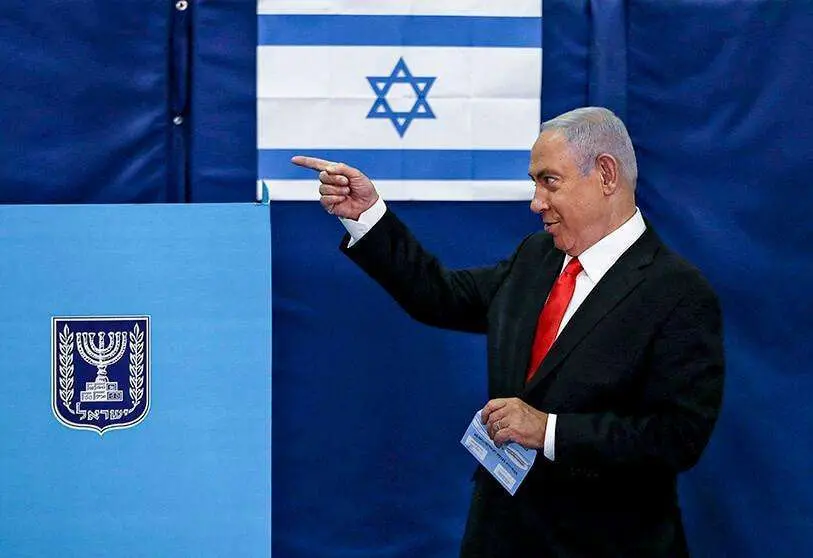Israel holds fifth elections in four years

On the first of November Israel is holding its fifth legislative elections in four years. A record that is hard to imagine in such an evolved and pragmatic country. The proliferation of parties of all colours, some of them conditioned by religious orthodoxy and others even by representing the two million Arabs - around twenty percent of the population - with Israeli nationality, who still offer the image of a world apart, make these elections only the beginning of a political change that will have to be achieved later in the arduous negotiations that will be necessary to achieve a majority of 61 seats out of the 120 that make up the Knesset, the parliament.
Amidst such a proliferation of parties with the greatest plurality of ideologies imaginable, it is difficult to see how the prospects for results worthy of consideration can be predicted during the campaign. Perhaps the most eloquent is the dispute for leadership between the incombustible ultra-right-wing Benjamin Netanyahu, leader of the Likud party, who after twelve years as prime minister is not resigned to retirement, and the current head of government, Yair Lapid, immediately broken by his own party, and also aspiring to re-election with centre-left arguments and with the open promise in his September message to the UN to open up to the creation of a Palestinian state, a taboo subject for Netanyahu.
Quite a few other leaders are competing, of course, each with their own followers, and all with the ambition to place themselves in any coalition that might be formed and, if their contribution in terms of seats justifies it, to obtain a ministerial portfolio that they would carry out with a certain degree of independence. The political fragmentation and proliferation of approaches, paradoxically often similar but often different, the difficulties created in forming a majority, are then often repeated in parliamentary debates and in the Council of Ministers meetings themselves, where disagreements are frequent. It cannot be said that Israel is not a democratic country: it is a democratic country with no qualms about what to do. If anything, it can be said that it is a complicated and, I would almost dare say, in practice too fragmented democracy.


